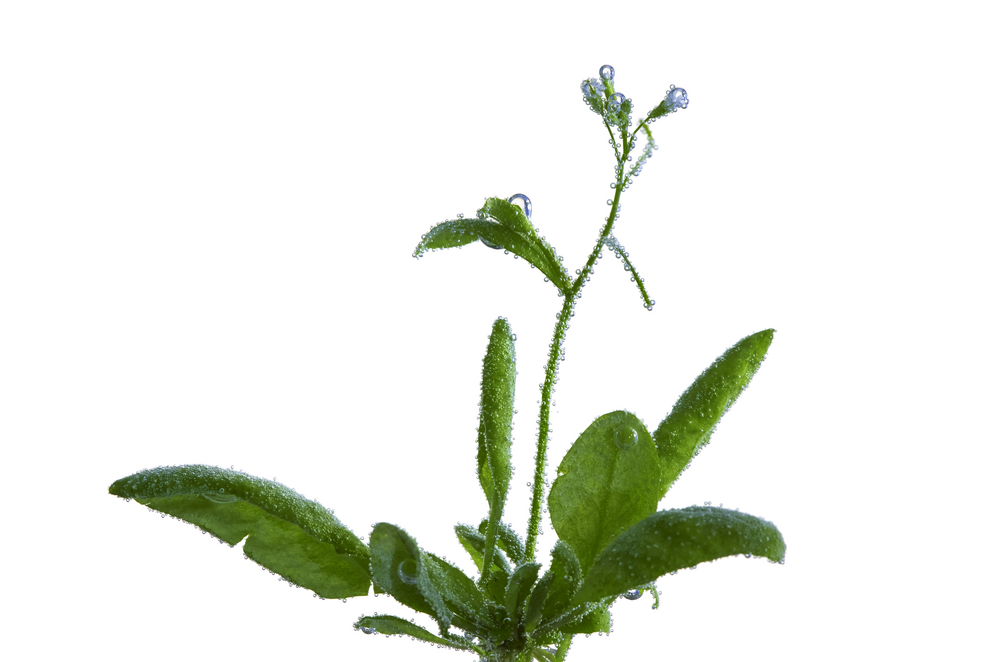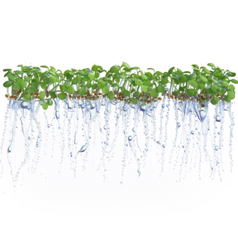Extreme weather phenomena are increasing worldwide - frequent droughts, fires and floods are consequences of climate change. For agriculture, a flooded field means major losses: approximately 15 % of global crop losses are due to flooding. Plant researcher Sjon Hartman wants to better arm plants against such weather phenomena. He is now taking up a junior professorship in "Plant Environmental Signalling and Development" at the CIBSS. In an interview with Mathilde Bessert-Nettelbeck, he describes his fascination with the memory of plants.


He is Getting to the Root of Plant Memory
Plant researcher Sjon Hartman is a new member of CIBSS and junior professor for "Plant Environmental Signalling and Development" at the University of Freiburg.
Junior Professor Dr. Sjon Hartman
- Until 2019: PhD at Utrecht University, The Netherlands, with Prof. Rens Voesenk, Plant Ecophysiology.
- 2020: Researcher (postdoctoral) in plant ecophysiology, Utrecht University, The Netherlands.
- 2021: Postdoctoral Rubicon Fellow at the Gibbs Lab, University of Birmingham, U.K.
- 2022 onwards: Junior Professorship in "Plant Environmental Signalling and Development at the University of Freiburg and at CIBSS
How exactly do plants react to flooding?
Sjon Hartman: Plant species are more or less well adapted to flooding, depending on their evolutionary history and habitat. That's what I want to learn from. There are two strategies that plants use to react: Either by saving energy, not growing any more and waiting for the flood to pass. This kind of dormancy is called quiescence. Or they react by adapting their growth to changing water levels. For example, certain rice varieties can grow very high, up to five metres, to escape the water. However, such snorkel leaves - they are really called that because only the tip needs to be above water - only help the plants to survive the flood when the water is slowly rising.
What is your goal? What idea is driving your research?
I want to understand how plants perceive and understand their environment. That fits perfectly with the research at CIBSS. My work is about how signals are perceived and integrated at the molecular level, and how plants react physiologically to changes. Using floods as an example, I am investigating how certain signalling molecules influence the growth or metabolism of the plant.
I also want to know whether the reaction to flooding helps the plant to survive in the environment - whether the plant learns, so to speak. Understanding this could make agricultural plants more tolerant of overwatering in the future, and prevent crop failure.

A submerged thale cress Arabidopsis thaliana. Picture: Iris Hartman
Why are you interested in plants and flooding? Isn't drought a bigger problem?
What is the bigger problem in your home? Too little or too much water? The roots of plants often suffocate if they are exposed to too much water for too long. Plants need oxygen, just like we do. In their leaves they can produce oxygen themselves from carbon dioxide through photosynthesis, but not in their roots. When the soil fills up with water, not enough oxygen can diffuse into the roots. The roots suffocate and die as soon as the reserves are exhausted. Plants can recover relatively well from too little water; but from too much water they recover only rarely.
You are researching how plants remember floods. But what does memory mean in plants?
Symbolically, it allows the plants' "eyes" - in this case I mean molecular signalling pathways - to stay open or closed depending on how threatening certain stressors like predators or drought are. We already know from other stressors like shade or caterpillars that plants learn from them, at the molecular level. We now want to prove this in the case of floods. Epigenetics plays a major role here: environmental changes can affect gene expression through epigenetic processes, even across generations. We have already been able to show that slight oxygen deficiency hardens young plants - they

“We already know from other stressors like shade or caterpillars that plants learn from them, at the molecular level. We now want to prove this in the case of floods.”
Which signalling pathways are you researching exactly?
I was already able to show in my doctoral thesis that plants exposed to the molecule ethylene before flooding are more tolerant of oxygen deficiency. We researched this on the thale cress Arabidopsis thaliana. Ethylene is a hormone that signals the danger of suffocation to the plant. Normally, all plant cells produce ethylene, but it only accumulates in the cells when the plant is under water. Otherwise, it escapes as a gas. Ethylene is also known for ripening fruits, for example. It triggers a signalling pathway that influences gene expression and even epigenetic mechanisms! A protein that controls and organises the structure of DNA in the cell, chromatin, is responsible for the memory processes triggered by such signalling molecules. We think that we have thus found a memory protein: If we switch off the protein, the plant forgets its experience of flooding again.
Can this also be controlled?
Yes, we are also researching in this area - can our new knowledge now be applied to other genes, other physiological reactions? And can we make plants react faster? We want to learn from the masters among the plants, so we are looking at different species to measure how they react to flooding. The differences are very big - a potato is very sensitive and dies immediately when it gets too much water. But maybe we can teach it the resilience of a rice plant, where flooding is part of the life cycle. Such molecular training would certainly be helpful for agriculture. Especially in an environment that is changing and where adaptations are becoming necessary.
Plant research at CIBSS
- Important part of the research programme at CIBSS: Plant projects in CIBSS A, B C and D
- Cross-Sectional Topic of CIBSS - Signalling Roots: Signalling from plant roots to shoots
- Main research species: Arabidopsis thaliana
- Also: mosses and oilseed rape species
- Areas of investigation: Development, environmental signals, symbioses, growth signals, biotechnological applications
- CIBSS Investigators: Dr. Elke Barbez, Jun Prof. Sjon Hartman, Prof. Dr. Andreas Hiltbrunner, Prof. Dr. Henning Jessen, Prof. Dr. Jürgen Kleine-Vehn, Prof. Dr. Thomas Laux, Prof. Dr. Thomas Ott, Prof. Dr. Ralf Reski,
What opportunities do CIBSS and the University of Freiburg offer for your research?
In CIBSS I have wonderful colleagues in plant research with whom I work closely. I am also very interested in collaborations in epigenetics, which is also being researched here, at the Max Planck Institute and the university. I look forward to exchanging ideas with other colleagues in this field!




